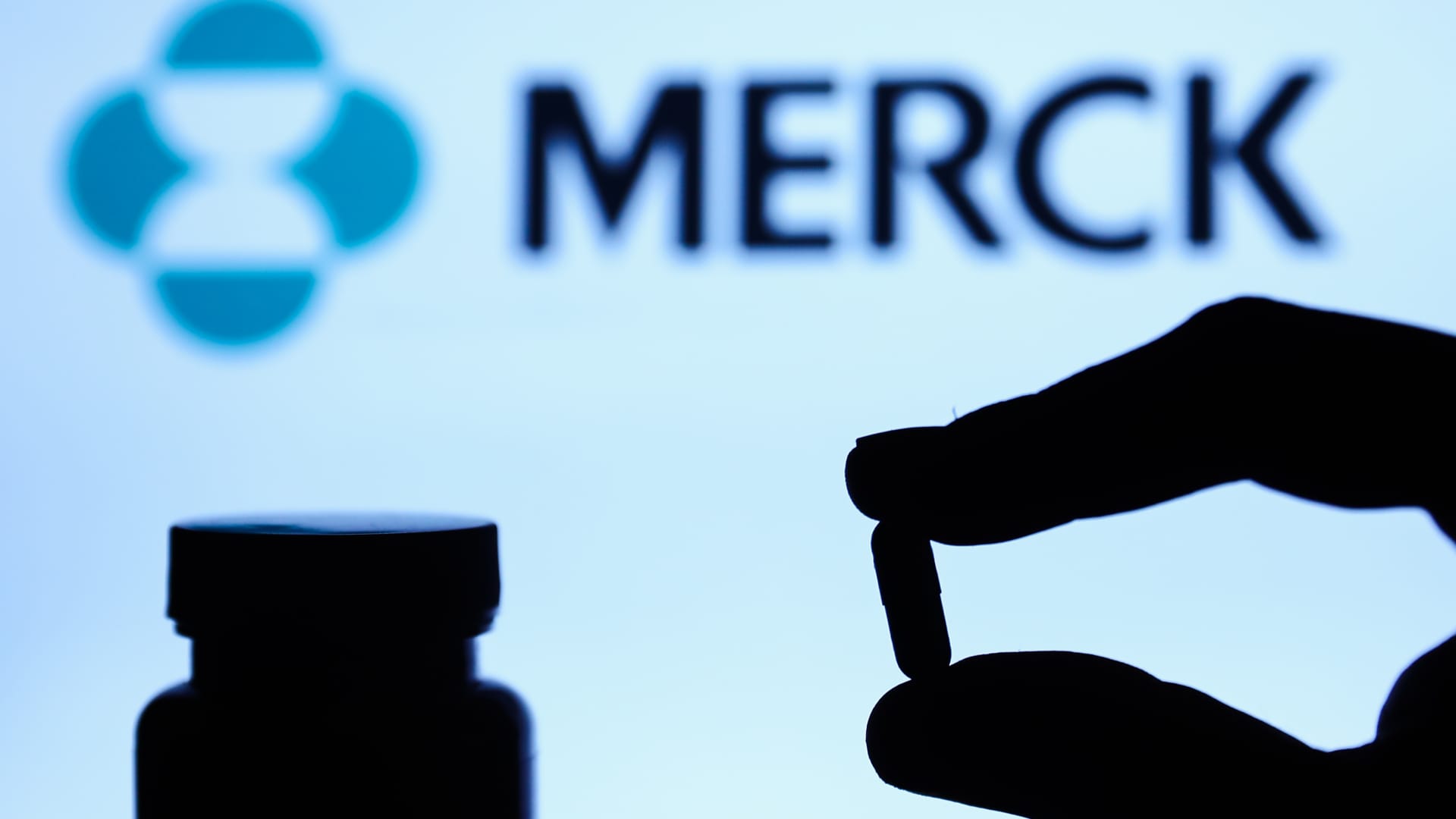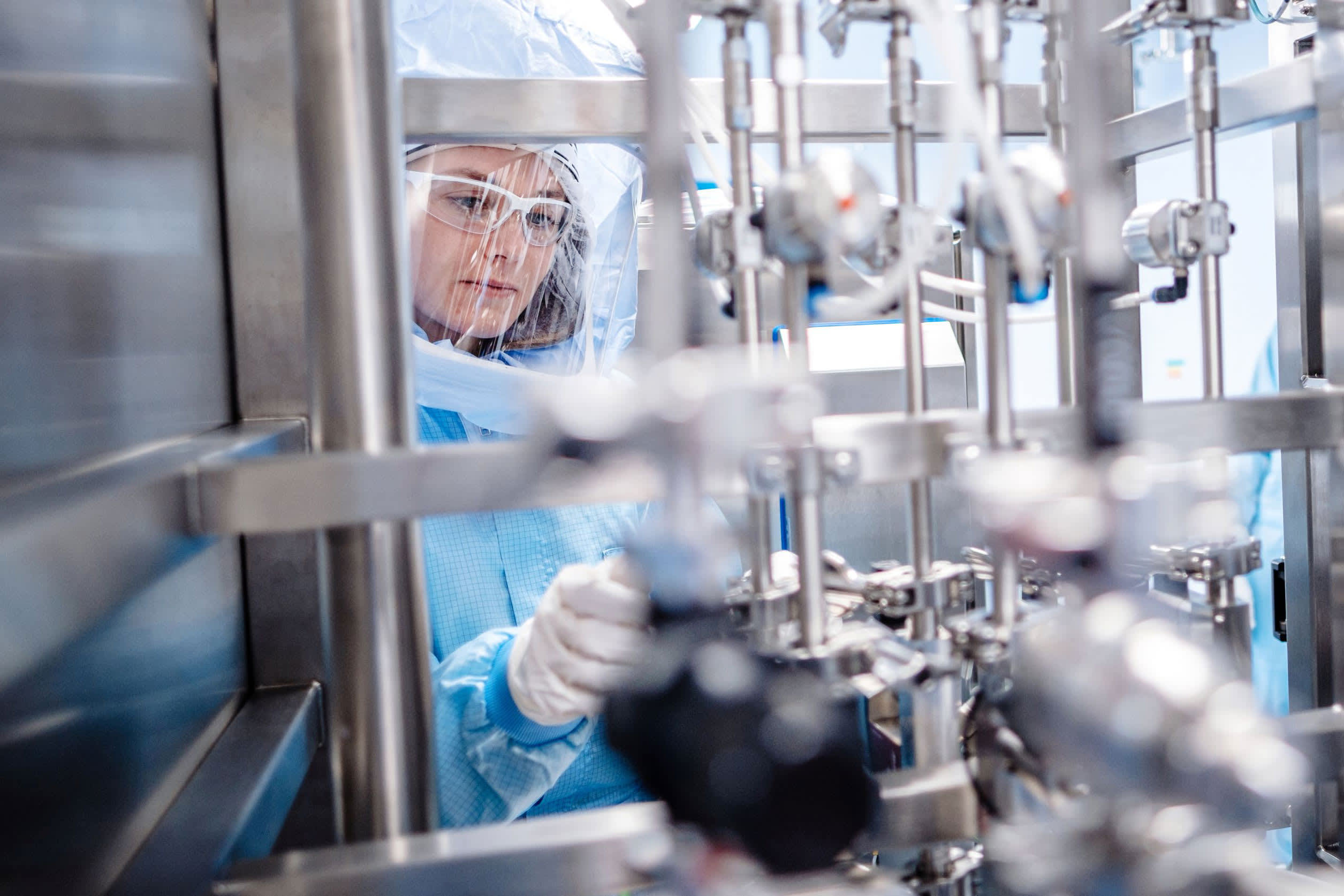Merck on Tuesday reported second-quarter revenue that topped expectations on strong sales of its blockbuster cancer drug Keytruda and HPV vaccine Gardasil.
The pharmaceutical giant posted a quarterly loss, however, due to charges associated with the company’s acquisition of Prometheus Biosciences earlier this year.
related investing news
Merck swung to a net loss of $5.98 billion, or $2.35 per share, from a net income of $3.94 billion, or $1.55 per share, during the year-earlier period. Excluding acquisition and restructuring costs, Merck’s loss per share was $2.06 for the quarter.
The loss reflects a $10.2 billion, or $4.02 per share, charge related to the company’s acquisition of Prometheus, which specializes in treatments for autoimmune diseases. Merck said it completed the deal in mid-June.
Here’s how Merck results compared with Wall Street expectations, based on a survey of analysts by Refinitiv:
- Loss per share: $2.06 adjusted vs. $2.18 expected
- Revenue: $15.04 billion vs. $14.45 billion expected
Revenue of $15.04 billion for the quarter rose 3% from a year earlier.
Shares of Merck are down roughly 4% this year, with a market value of roughly $270 billion, making it the third largest pharmaceutical company based in the U.S.
The New Jersey-based company raised its 2023 sales forecast to a range of $58.6 billion to $59.6 billion, slightly higher than the $57.7 billion to $58.9 billion guidance provided in late April.
Merck lowered its full-year adjusted earnings outlook to $2.95 to $3.05 per share, from a previous forecast of $6.88 to $7 per share.
The company said its business growth during the quarter contributed 24 cents per share to the full-year earnings guidance, but was offset by the $4.02 per share charge related to the Prometheus deal.
The outlook also includes previously disclosed one-time charges related to Merck’s acquisition of Imago BioSciences last year and an upfront payment for a drug development agreement with Kelun-Biotech.
Strong pharmaceutical sales
Merck’s pharmaceutical business, which develops a wide range of drugs for different disease areas, booked $13.46 billion in revenue during the quarter. That’s up 6% from the same period a year ago.
Excluding Merck’s Covid antiviral treatment molnupiravir, the pharmaceutical division revenue grew 14%.
Sales of molnupiravir, sold under the brand name Lagevrio, plunged to $203 million during the period, down 83% from the $1.18 billion reported for the second quarter of 2022. Analysts had been expecting the drug to rake in $187.6 million in sales, according to FactSet estimates.
The decline isn’t a surprise. Sales of molnupiravir and other Covid products from companies like Pfizer have plummeted this year as the world emerges from the pandemic and relies less on vaccines and treatments for protection.
The pharmaceutical division’s growth was largely fueled by the popular antibody treatment Keytruda, which is used to treat several types of cancer.
The drug booked $6.27 billion in revenue, up 19% from the year-earlier quarter. Analysts had been expecting $5.97 billion in Keytruda sales, FactSet estimates said.
The company has been under pressure to reduce its dependence on Keytruda, which is slated to lose patent protection in 2028. But Merck is trying to defend its patent edge over Keytruda by developing new formulations of the drug, such as a version that can be injected under the skin.
Merck’s pharmaceutical business also saw a jump in sales of Gardasil, a vaccine that prevents cancer from HPV, the most common sexually transmitted infection in the U.S.
Gardasil raked in $2.46 billion in sales, up 47% from the second quarter of 2022. Analysts had been expecting sales of $2.10 billion, according to FactSet estimates.
The company’s animal health division, which develops vaccines and medicines for dogs, cats and cattle, posted $1.46 billion in sales, off 1% from the same period a year ago.
Merck will hold a conference call at 8 a.m. ET on Tuesday.
Investors are eager for updates on upcoming product launches and other drug pipeline updates that could cushion Keytruda’s patent cliff if they gain approval.
That includes Merck and Moderna’s experimental personalized cancer vaccine, which is being studied in combination with Ketyruda. The drugmakers launched a phase three trial of the vaccine last week.
Other products include Merck’s experimental vaccine that aims to prevent invasive pneumococcal disease and pneumococcal pneumonia in adults.


